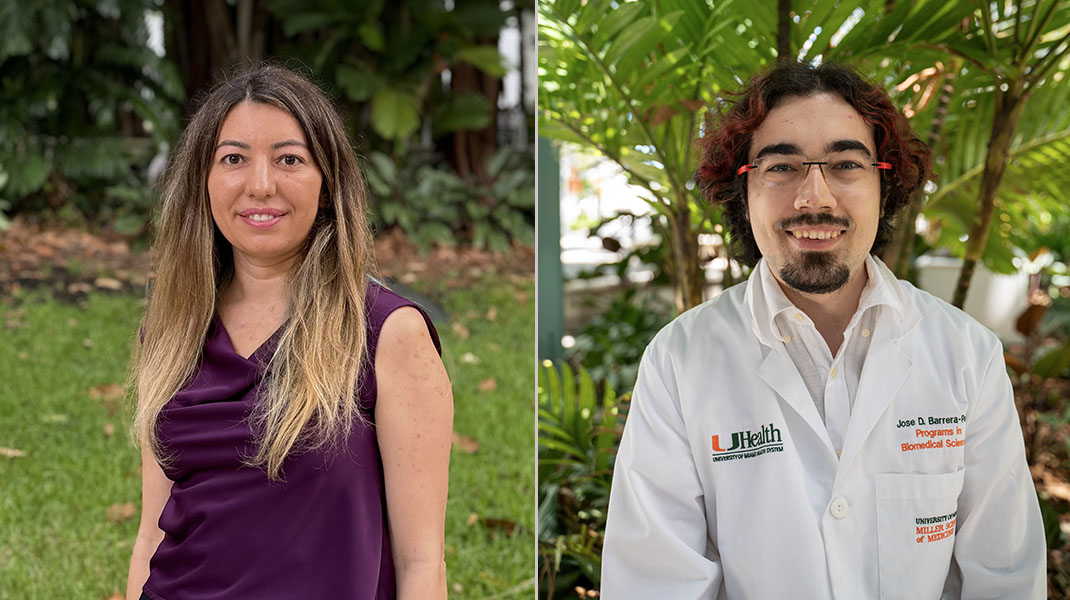By: Julie Landry Laviolette | April 16, 2025 | 7 min. read |
The awards honor the work of the late Louis J. “Skip” Elsas, M.D., the former chief of medical genetics at the Miller School.
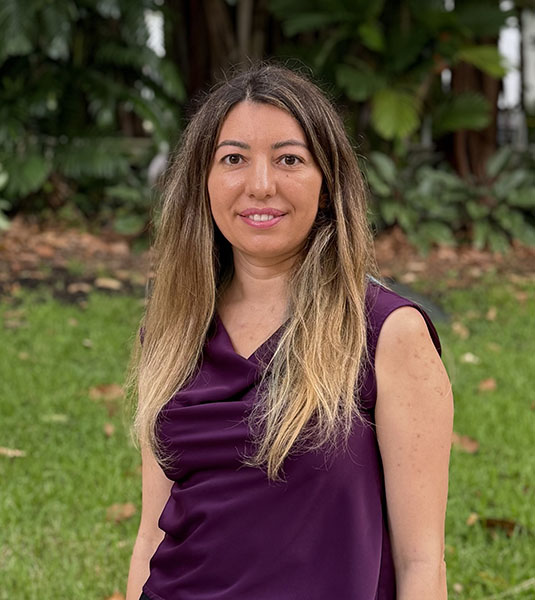
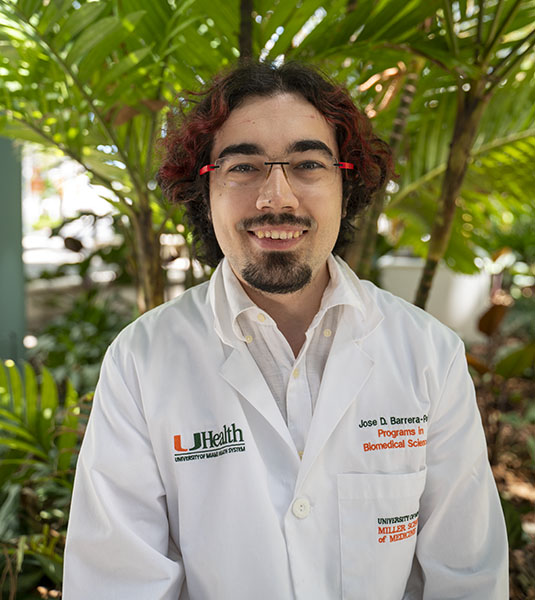
A postdoctoral fellow and a Ph.D. candidate at the University of Miami Miller School of Medicine have received the 2024 Elsas Award honoring the work of the late Louis J. “Skip” Elsas, M.D., the former chief of medical genetics at the Miller School.
A prominent researcher in biochemical genetics, Dr. Elsas joined the University of Miami in 2002 when a multimillion-dollar gift from the Dr. John T. Macdonald Foundation allowed the university to establish a medical genetics program.
Dr. Elsas was recruited to lead the Miller School’s emerging work in the field by R. Rodney Howell, M.D., professor and chair emeritus of the Department of Pediatrics at the Miller School and a fellow geneticist. Dr. Howell now serves on the board of the Dr. John T. Macdonald Foundation.
Today, genetics has become a part of every area of medicine, he said.
“These awards are important because they encourage genetics research for an array of people at many levels of training and experience,” said Dr. Howell, a friend and colleague of Dr. Elsas for more than 35 years. “Not only do they recognize the contributions of Dr. Elsas but the important role that the foundation has played in medical genetics at the University of Miami Miller School of Medicine.”
Havva Ortabozkoyun, Ph.D., Postdoctoral Fellow
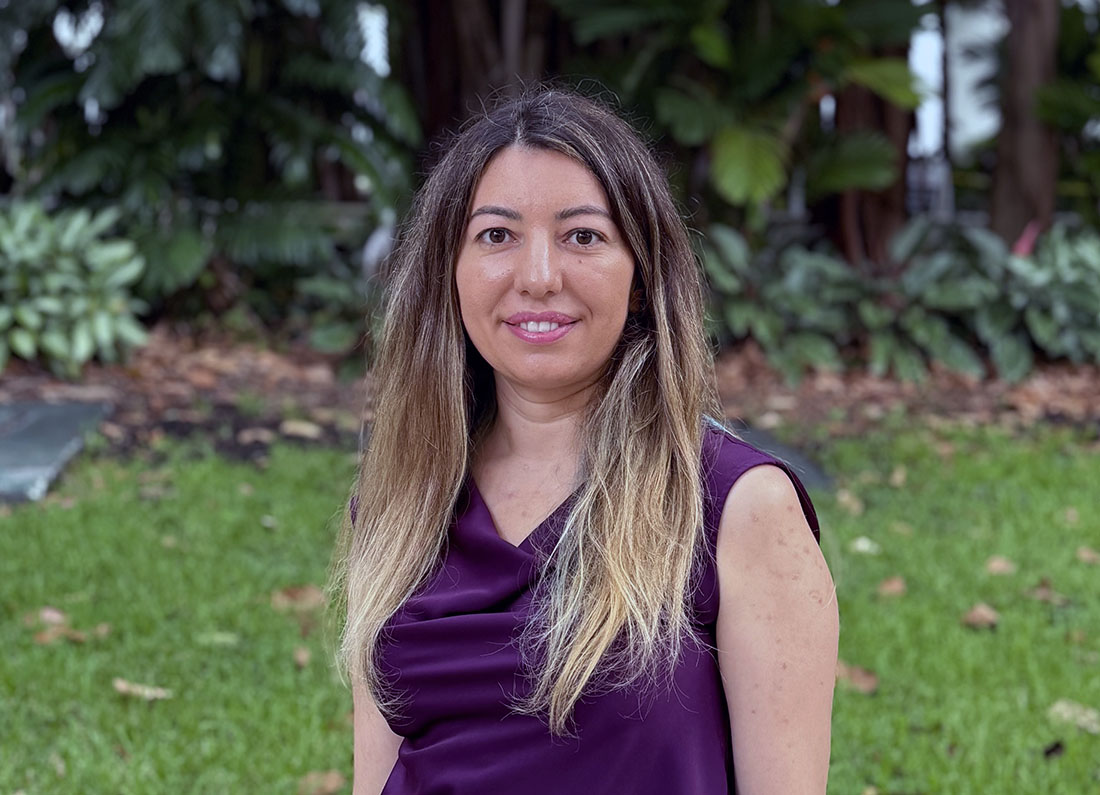 Havva Ortabozkoyun
Havva Ortabozkoyun
An interest in stem cell biology and cancer biology to learn how diseases develop and how targeted therapies can be created has guided the research of Havva Ortabozkoyun, Ph.D., a postdoctoral fellow in the Dr. John T. Macdonald Foundation Department of Human Genetics. She is under the mentorship of Danny Reinberg, Ph.D, distinguished professor in the Dr. John T. MacDonald Foundation Department of Human Genetics.
“I focus on the epigenetic basis of gene regulation by the switching on/off of genes to understand the formation of cell lineages,” Dr. Ortabozkoyun said. “The aim is to identify insulation factors between active and repressed regions of DNA and understand how they regulate gene activity.”
Dr. Ortabozkoyun identified new insulation factors in addition to CTCF called MAZ, PATZ1, ZNF263 and a group of zinc-finger proteins involved in gene regulation and genome organization, deepening the understanding of how diseases like cancers develop. These protein molecules function as insulators between active and repressed genes, such as Hox genes, that are important during development.
Specifically, she studied the effects of the loss of these protein molecules in genetically engineered embryonic stem cells and mice models, where the loss altered the cellular identities in motor neurons and the skeleton.
“Receiving this award has been a great honor,” Dr. Ortabozkoyun said. “As we understand epigenetic mechanisms and the complex regulation of critical genes, it will help tailor disease treatments by predicting drug responses, offer personalized medicine, regulate immune responses and improve the efficiency of stem-cell based therapies.”
Jose Domingo “Pepe” Barrera-Paez, Ph.D. Candidate
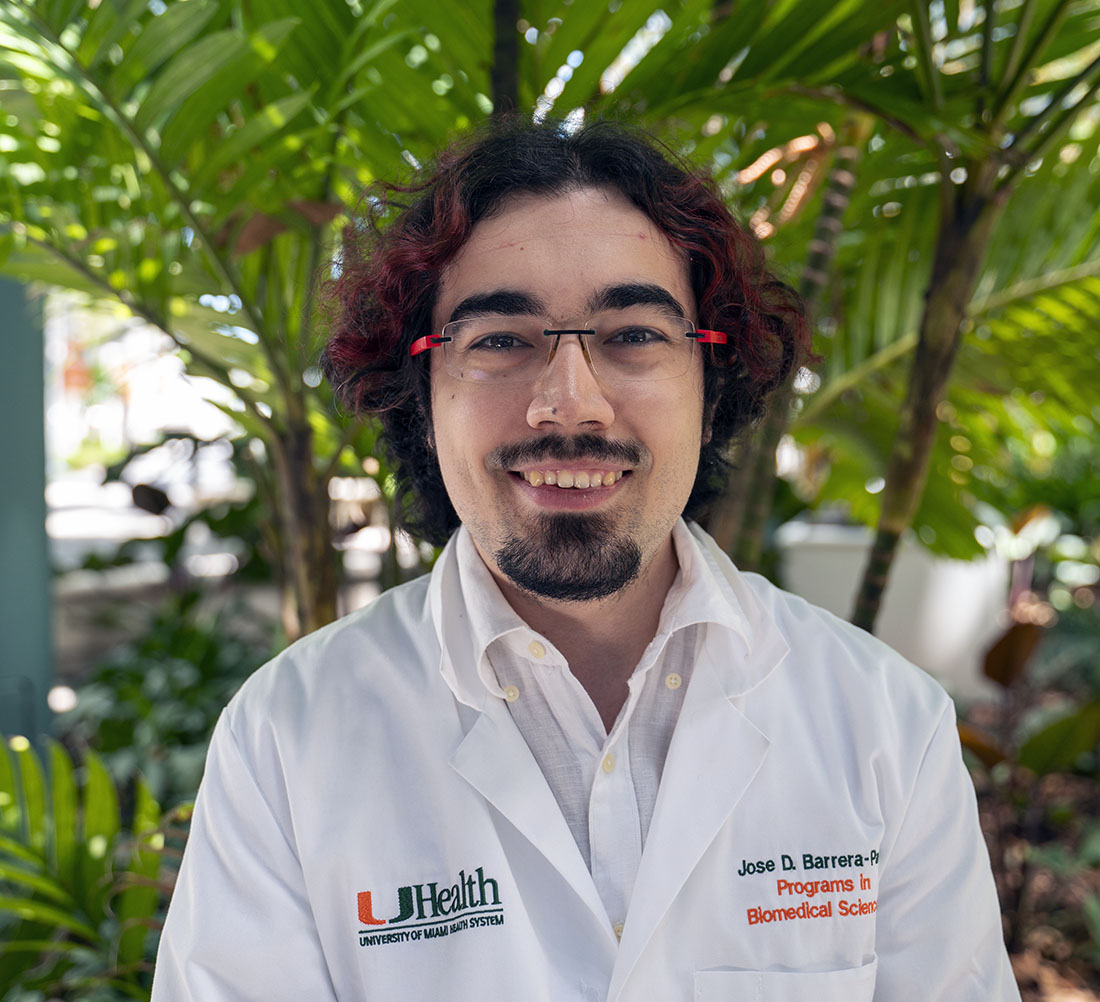 Jose Domingo “Pepe” Barrera-Paez
Jose Domingo “Pepe” Barrera-Paez
Finding the root cause of mitochondrial diseases, one of the most common groups of inherited metabolic and neurological disorders, is what drives the research of Jose Domingo “Pepe” Barrera-Paez. He is a Ph.D. candidate in human genetics and genomics under the mentorship of Carlos Moraes, Ph.D., professor of neurology at the Miller School.
“Mutations in the mitochondrial DNA are the most prominent trigger of mitochondrial diseases in adults. Currently, these patients only have palliative treatments available that address the symptoms, but not the root cause,” Barrera-Paez said. “In contrast, mitochondrial base editing has the potential of directly correcting these mutations and curing these patients after one round of treatment. My research highlights the current challenges to bringing this technology closer to the clinic.”
The mitochondrial genome has proven to be difficult to edit with therapeutic intent. Barrera-Paez tested the therapeutic potential of DdCBE, the first mitochondrial base editor to be reported in literature, he said. This system, which induces cytosine-to-thymine mutations on a desired region of the mitochondrial DNA, was used to correct a pathological mitochondrial DNA mutation in a mouse model.
Barrera-Paez’s results showed that although DdCBE is a promising gene therapy tool for mitochondrial disorders, the doses of the therapeutic gene constructs must be carefully monitored to avoid severe adverse effects.
Receiving the Elsas Award was humbling, he said. “This honor represents an acknowledgement of my research by both the university and my graduate program.”
Mustafa Tekin, M.D., chair of the Dr. John T. Macdonald Foundation Department of Human Genetics, said the award plays a vital role for early-in-career researchers.
“Recognition can have a profound impact by boosting confidence, fostering a sense of belonging in the scientific community and motivating toward future discoveries that advance human health,” he said.
Tags: cancer biology, genetics, mitochondrial defects, philanthropy, student research
